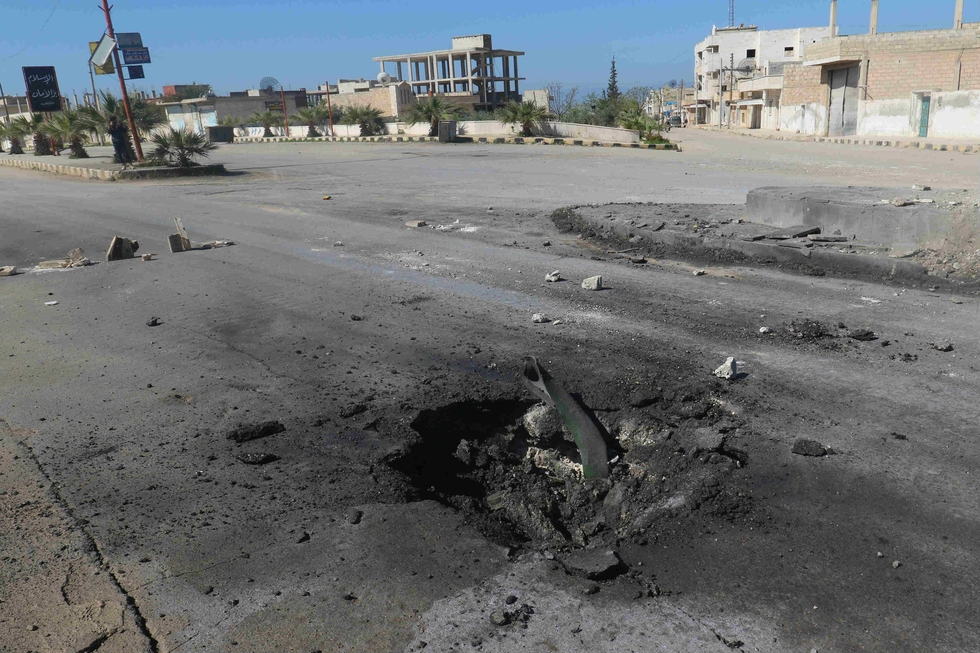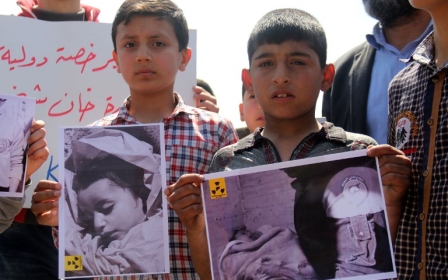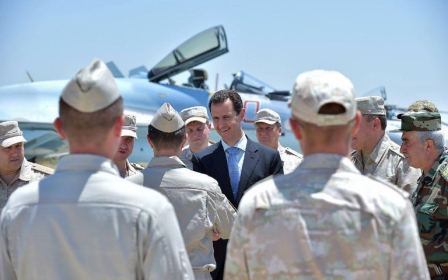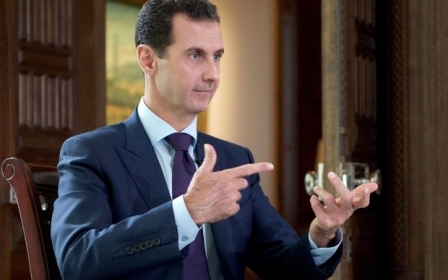EU sanctions Syrian soldiers and scientists over chemical weapons

More than a dozen high ranking Syrian military officials and scientists were blacklisted by the EU on Monday over chemical weapons attacks on civilians inside Syria.
The EU has now imposed sanctions against a total of 255 people implicated in President Bashar al-Assad's violent crackdown against civilians.
These individuals now face a travel ban and assets freeze by the EU.
The latest round of sanctions by the EU comes after the UN's chemical watchdog, the OPCW, ruled that sarin gas had been used in the town of Khan Sheikoun, inside the province of Idlib.
"The EU added these 16 persons for their role in the development and use of chemical weapons against the civilian population," an EU statement said.
The EU will release the names of those hit by the sanctions on Tuesday, it said.
The sanctions decision "shows the resolve of the UK and the rest of our friends in Europe in dealing with those who are responsible for chemical weapons attacks," said the British foreign secretary, Boris Johnson.
The chemical attack inside Idlib led to the US firing missiles against Syrian military positions inside Syria.
Syria joined a chemicals weapons convention in 2013 under a Russian-US agreement, averting military intervention under the former US president, Barack Obama.
While the European Union has no military role in the conflict, it is the biggest aid donor and has said it will not help rebuild Syria until a peace process involving a transition away from Assad's government is underway.
But the 28-member bloc's position on Syria is in flux after France's president, Emmanuel Macron, broke with the previous French government position by saying he saw no legitimate successor to Assad and no longer considered his departure a precondition to resolving the war.
Syria is already subject to an oil embargo, restrictions on certain investments, a freeze of the assets of the Syrian central bank held in the EU, as well as export restrictions.
It also is under sanctions on equipment and technology that might be used for internal repression as well as on equipment and technology for the monitoring or interception of internet or telephone communications.
New MEE newsletter: Jerusalem Dispatch
Sign up to get the latest insights and analysis on Israel-Palestine, alongside Turkey Unpacked and other MEE newsletters
Middle East Eye delivers independent and unrivalled coverage and analysis of the Middle East, North Africa and beyond. To learn more about republishing this content and the associated fees, please fill out this form. More about MEE can be found here.




